I have a very special edition of the folk-horror novel, Starve Acre, it is signed by the author, Andrew Michael Hurley and its pages are black edged. If I really love a book, I try to obtain a special edition of it - and Starve Acre is my favourite contemporary folk-horror novel. I have read both of Hurley’s other books as well as many of his short stories. All of which have themes of arcane folklore and the-land-as-other running through them. His writing is deeply sinister and eerie, slow burning and dripping with tension. In short, they are, to me, perfect folk-horror and I love them!
When news spread about a film adaptation of Starve Acre, I was in two minds about it. Partly I wanted the story to reach a larger audience, and for more people to appreciate this masterpiece of the genre; and partly I was dubious that it could capture the true supernatural eeriness that Hurley does so beautifully. I had read a few negative comments on social media, which made me think twice about seeing the film at all - then again, I had read the same sort of reaction towards The Moor, another folk-horror themed film released earlier this year, which I loved, (and recommend.) In the end I didn’t want to miss this film - and when I found it was on reasonably locally, it was a no brainer. I decided good or bad, I had to see it.
I wasn’t disappointed by my decision!
There are obviously going to be differences between the book and film and most are necessary to make the story work visually. The film moves through time in a linear way - from beginning to end, whereas the book starts at a later point and reveals past events at certain points. This is a very clever plot device in written works but doesn’t always translate well onto film. In this case the tension in the storyline is not sacrificed by this change. On the whole the director, Daniel Kokotaglo, has created a version that is sympathetic to the original but worthy of merit in its own right as a stunningly crafted film.
The plot of the film follows the story of a young family who have moved into Richard’s (the dad,) family farm. Ewen their son starts exhibiting violent and disturbing behaviour, saying that Jack Grey is talking to him. Jack Grey is a malevolent spirit who was honoured in the past by locals in pagan rituals, including sacrifice. After Ewen’s sudden death, the pair grieve and their marriage begins to fall apart. Richard, who is an archaeologist, begins excavating his field in search of the roots of an ancient oak tree that was a place of significant, and finds the skeleton of a hare…
One of the striking motifs that runs throughout the film is the-land-as-other - or perhaps more aptly - the-land-as-evil. In this case, it implies all the inherent evil and problems come from outside the home, are dug up from the earth or are natural forces of folklore that emanate from the landscape. Think of the 70s BBC information films about the spirit of dark and lonely water, then add a surreal and uncomfortable soundtrack. The atmosphere created reminded me a great deal of Blood on Satan’s Claw, (1971 Tigon Pictures,) where a strange skull is accidentally ploughed up thus bringing about the events that follow. In Starve Acre, the artefact dug up is both the hare’s bones and latterly, the remains of the oak tree. The effect of these artefacts, in both cases, is devastating. Other recent examples include Ben Wheatley’s In the Earth, (2021 Universal Pictures,) and the visceral Enys Men directed by Mark Jenkin, (2022, BFI.)
Folklore and folktales are the very essence of folk horror; harking back to M R James’ classic The Stalls of Barchester Cathedral, which also features an oak tree used in pagan ritual that had been chopped down. The opening credits of Starve Acre feature an old rhyme that tells of an entity known as Dandelion Jack or Jack Grey, who is the entity at the heart of the story.
Richard and Juliet’s Grief after the loss of their son opens the door to the unfolding events and disturbing conclusion, which follows very much in the footsteps of the eminent Don’t Look Now. Richard is played in a beautifully understated performance by Matt Smith, his Richard is a gentle caring father who feels incapable of expressing his emotions or comforting his wife,Juliet. In a superbly powerfully and emotional performance by Morfydd Clark, Juliet expresses every stage of pain, loss and guilt. The two central characters are utterly alone and alienated from each other in their grief, making it difficult to watch something so visceral and totally convincing.
The cinematography is simply stunning, with the eerie blown out quality of 70s static analogue TVs or grainy home movies, hinting perhaps at found footage. As already mentioned, the musical score adds to the overall oppressive atmosphere. It is obvious that the director and crew know how to unnerve and disturb their audience.
In conclusion, if you like a slow burn, moody folk-horror & have the opportunity to watch Starve Acre, grab it with both hands.




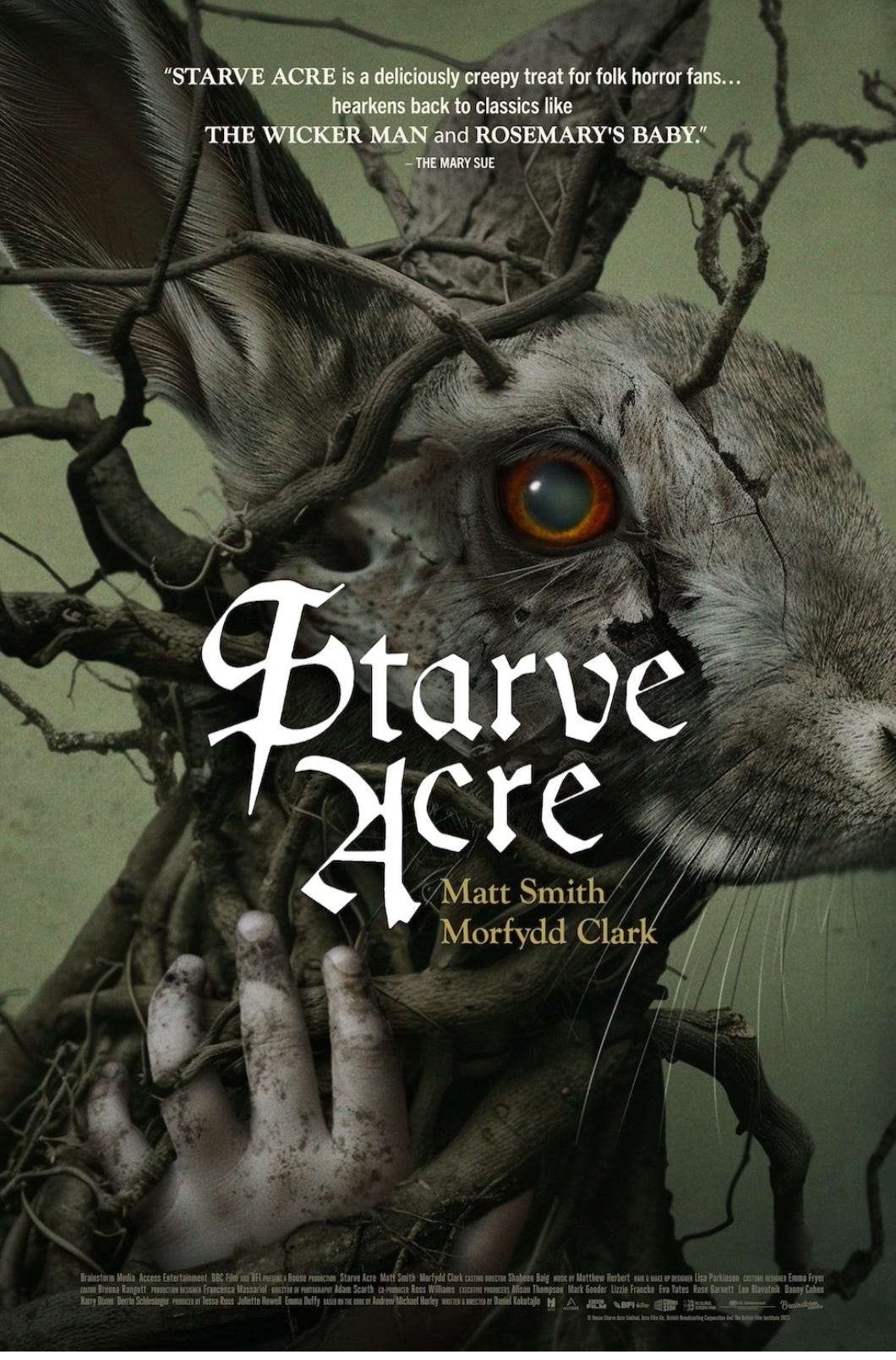

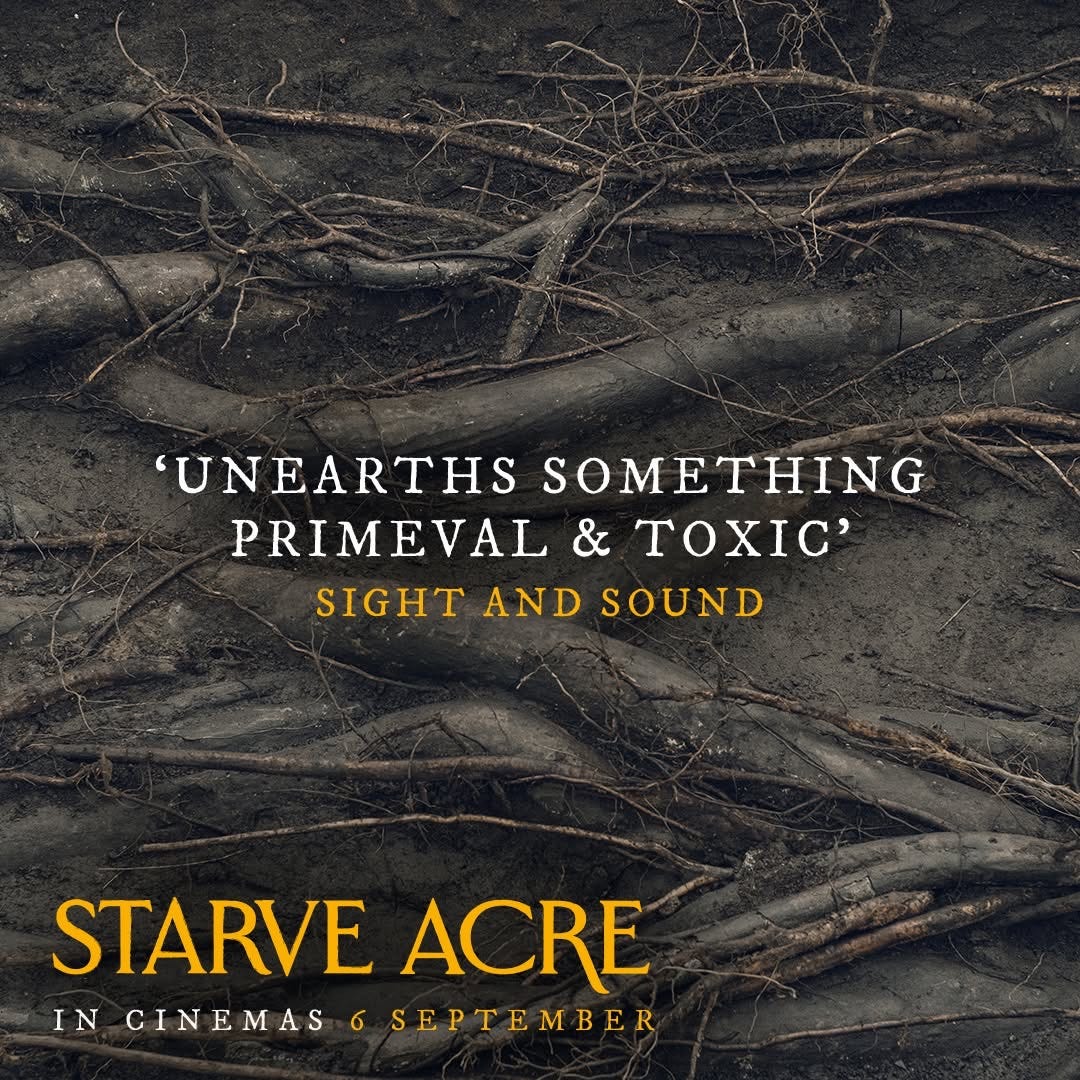
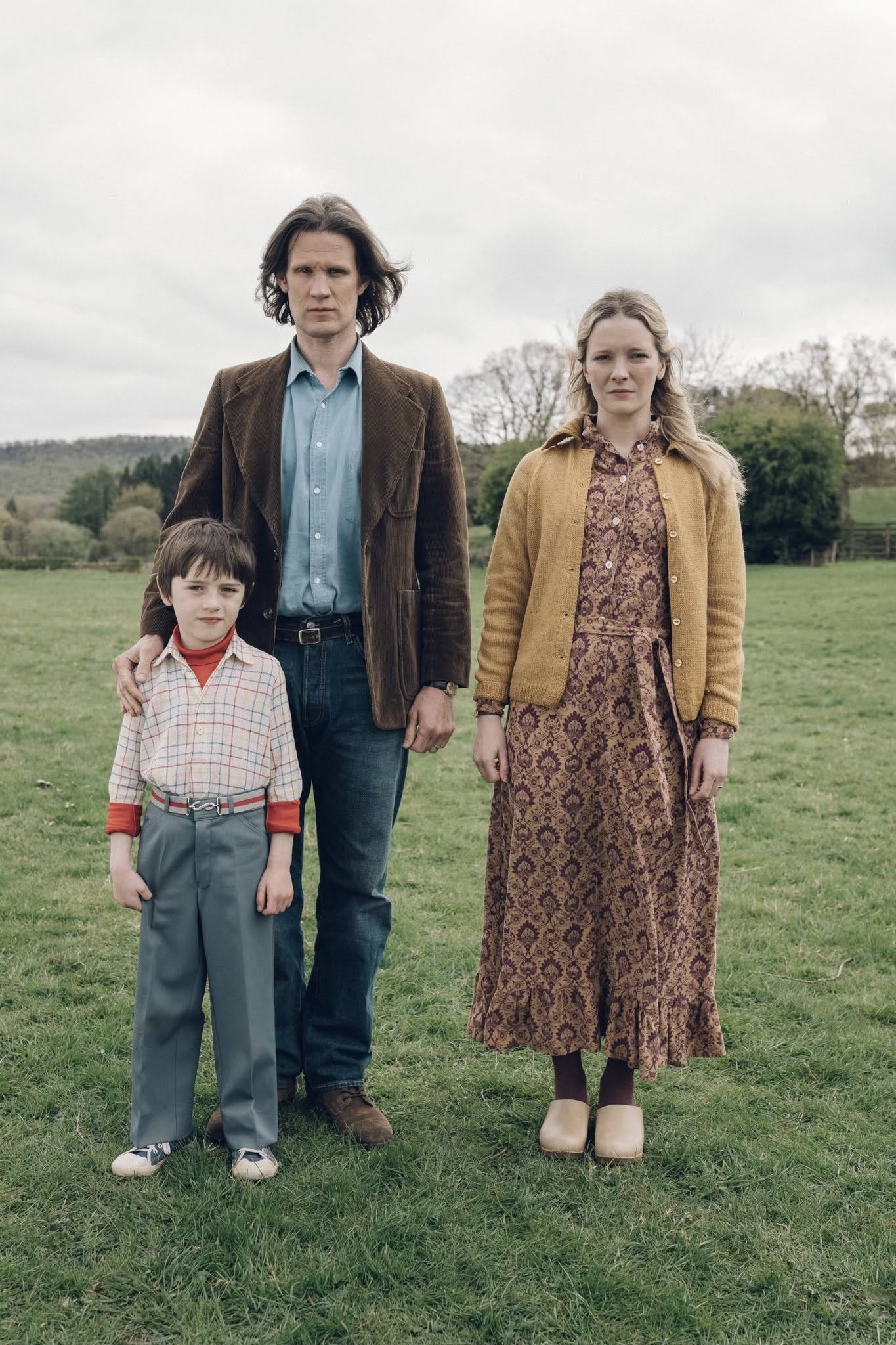

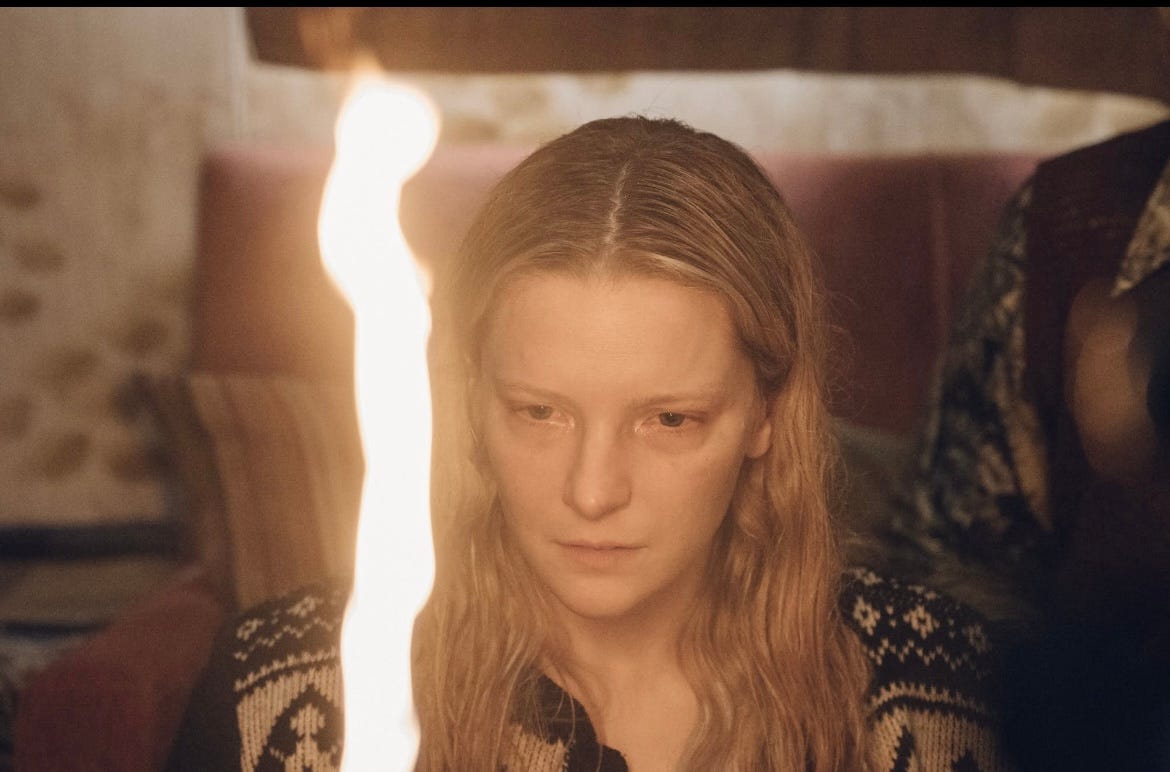

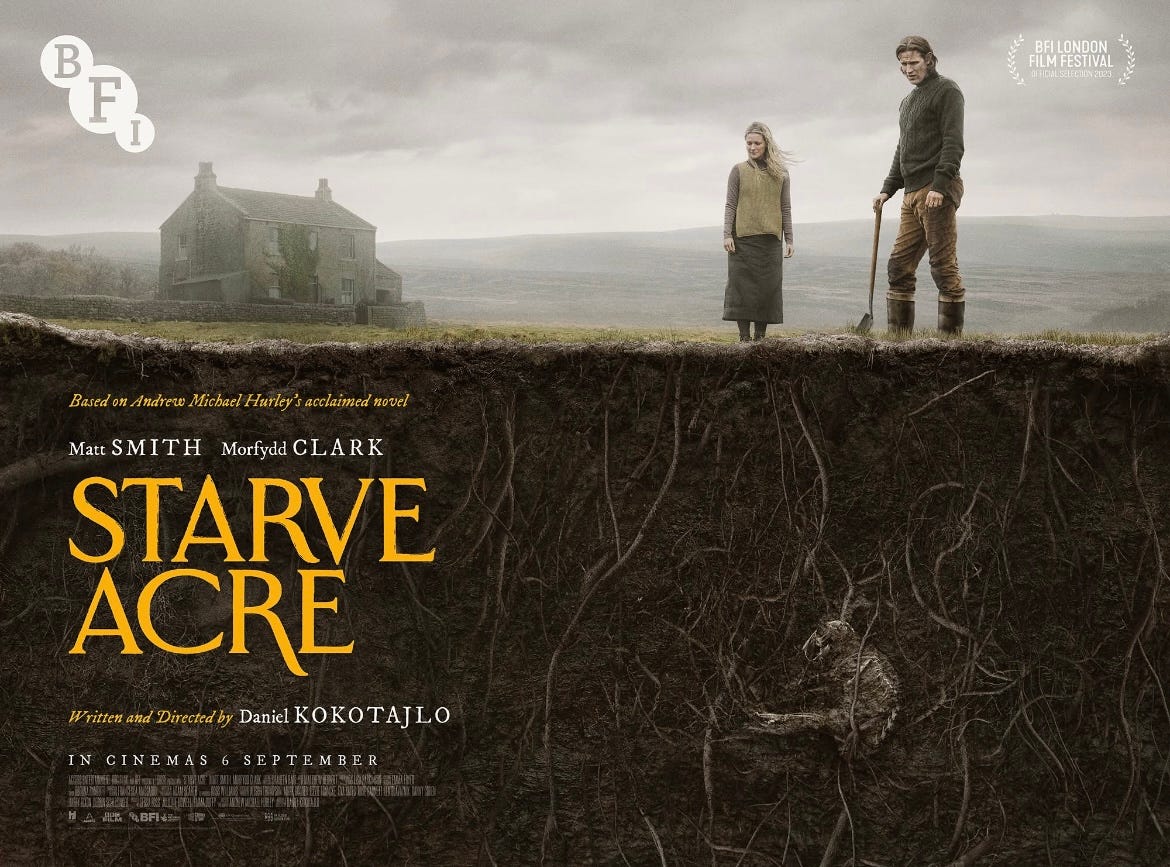
As a fan of folk-horror this sounds up my street. Very informative write-up which has definitely encouraged me to investigate further.